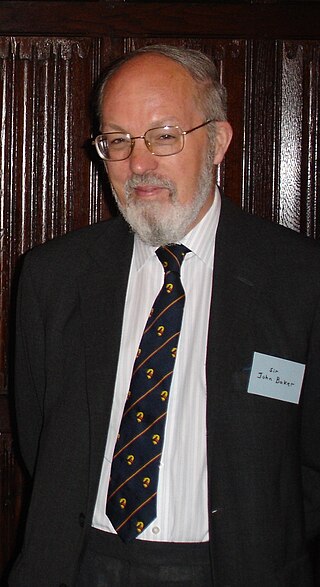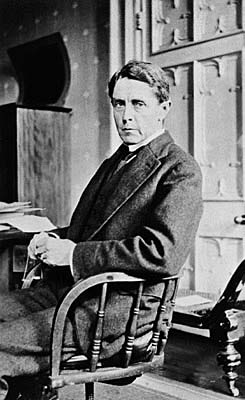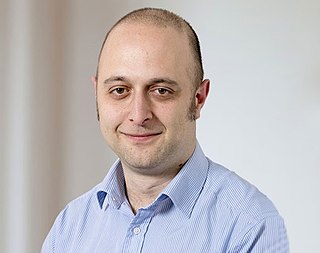Related Research Articles
At common law, damages are a remedy in the form of a monetary award to be paid to a claimant as compensation for loss or injury. To warrant the award, the claimant must show that a breach of duty has caused foreseeable loss. To be recognized at law, the loss must involve damage to property, or mental or physical injury; pure economic loss is rarely recognized for the award of damages.
A tort is a civil wrong, other than breach of contract, that causes a claimant to suffer loss or harm, resulting in legal liability for the person who commits the tortious act. Tort law can be contrasted with criminal law, which deals with criminal wrongs that are punishable by the state. While criminal law aims to punish individuals who commit crimes, tort law aims to compensate individuals who suffer harm as a result of the actions of others. Some wrongful acts, such as assault and battery, can result in both a civil lawsuit and a criminal prosecution in countries where the civil and criminal legal systems are separate. Tort law may also be contrasted with contract law, which provides civil remedies after breach of a duty that arises from a contract. Obligations in both tort and criminal law are more fundamental and are imposed regardless of whether the parties have a contract.

Robin Brunskill Cooke, Baron Cooke of Thorndon, was a New Zealand judge and later a British Law Lord and member of the Judicial Committee of the Privy Council. He is widely considered one of New Zealand's most influential jurists, and is the only New Zealand judge to have sat in the House of Lords. He was a Non-Permanent Judge of the Court of Final Appeal of Hong Kong from 1997 to 2006.
Restitution and unjust enrichment is the field of law relating to gains-based recovery. In contrast with damages, restitution is a claim or remedy requiring a defendant to give up benefits wrongfully obtained. Liability for restitution is primarily governed by the "principle of unjust enrichment": A person who has been unjustly enriched at the expense of another is required to make restitution.
The Vinerian Scholarship is a scholarship given to the University of Oxford student who "gives the best performance in the examination for the degree of Bachelor of Civil Law". Currently, £2,500 is given to the winner of the scholarship, with an additional £950 awarded at the examiners' discretion to a proxime accessit (runner-up).

John Gardner was a Scottish legal philosopher. He was senior research fellow at All Souls College, Oxford, and prior to that the Professor of Jurisprudence at the University of Oxford and a fellow of University College, Oxford.
The Society of Legal Scholars (SLS) is the learned society for those who teach law in a university or similar institution or who are otherwise engaged in legal scholarship. As of the beginning of 2016 the Society had over 3,000 members consisting of academic and practising lawyers in a wide variety of subject areas. It has charitable status.

Robert Lionel Archibald Goff, Baron Goff of Chieveley, was an English barrister and judge who was Senior Lord of Appeal in Ordinary, the equivalent of today's President of the Supreme Court. Best known for establishing unjust enrichment as a branch of English law, he has been described by Andrew Burrows as "the greatest judge of modern times". Goff was the original co-author of Goff & Jones, the leading English law textbook on restitution and unjust enrichment, first published in 1966. He practised as a commercial barrister from 1951 to 1975, following which he began his career as a judge. He was appointed to the Judicial Committee of the House of Lords in 1986.

Tort reform consists of changes in the civil justice system in common law countries that aim to reduce the ability of plaintiffs to bring tort litigation or to reduce damages they can receive. Such changes are generally justified under the grounds that litigation is an inefficient means to compensate plaintiffs; that tort law permits frivolous or otherwise undesirable litigation to crowd the court system; or that the fear of litigation can serve to curtail innovation, raise the cost of consumer goods or insurance premiums for suppliers of services, and increase legal costs for businesses. Tort reform has primarily been prominent in common law jurisdictions, where criticism of judge-made rules regarding tort actions manifests in calls for statutory reform by the legislature.

Sir John Hamilton Baker, KC (Hon), LLD, FBA, FRHistS is an English legal historian. He was Downing Professor of the Laws of England at the University of Cambridge from 1998 to 2011.

Sir William Harrison Moore KBE CMG, usually known as Harrison Moore or W. Harrison Moore, was an Australian lawyer and academic who was a professor at the University of Melbourne and the third dean of the Melbourne University Law School.

Sir John William Salmond was a legal scholar, public servant and judge in New Zealand.

Simon Deakin is Professor of Law at the Faculty of Law, Cambridge, and a Fellow of Peterhouse, Cambridge. He is regarded as the leading expert in the field of employment law and labour law and is the programme director in the Cambridge Centre for Business Research (CBR), as well as an associate Faculty member of the Judge Business School.
Courtney Stanhope Kenny was a British jurist, academic and Liberal politician. He sat in the House of Commons from 1885 to 1888, and was later Downing Professor of the Laws of England at Downing College, University of Cambridge. He is buried with his family in the Parish of the Ascension Burial Ground in Cambridge.
The Yorke Prize is awarded annually by the Faculty of Law at the University of Cambridge for an essay of between 30,000 and 100,000 words on a legal subject, including the history, analysis, administration and reform of law, "of exceptional quality, which makes a substantial contribution to its relevant field of legal knowledge."
Dame Sarah Elizabeth Worthington, is a British legal scholar, professor at LSE Law School, barrister, and Deputy High Court Judge in the Chancery Division, specialising in company law, commercial law, and equity. From 2011 to 2022, she was the Downing Professor of the Laws of England at the University of Cambridge. She is Treasurer of the British Academy and a trustee of the British Museum.
Brian Coote was a New Zealand legal academic. He wrote the influential book Exception Clauses, published in 1964, and served as dean of the law faculty at the University of Auckland from 1983 to 1987.

Paul S Davies is an English barrister and academic notable for having been published in many areas of private law, particularly commercial law. He has been the chair in Commercial Law at the Faculty of Law, University College London since 2017 and has practised as a barrister at Essex Court Chambers since 2021.
Sir Hugh Fraser was a British barrister and English High Court judge. An authority on libel, torts, and election law, he was the author of several important books in these areas. Unusually, he was appointed to the High Court in without having taken silk, though he had a large practice.
Nicole Anna Moreham is a professor of law at Victoria University of Wellington in New Zealand. Her research focuses on media law and tort law, and she has a particular interest in privacy. She clerked at the New Zealand Court of Appeal and has taught at the University of Cambridge and Victoria University of Wellington. She was the first legal scholar in New Zealand to be awarded a Rutherford Discovery Fellowship.
References
- 1 2 Hendley-Boys, Angela (9 June 2020). "Professor Jason Varuhas". Melbourne Law School. Retrieved 27 July 2020.
- ↑ "Old Boy, Dr Jason Varuhas (1999),... - Scots Collegians Association | Facebook". www.facebook.com. Retrieved 27 July 2020.
- 1 2 3 4 5 "Law alumnus awarded Yorke Prize from University of Cambridge". www.infonews.co.nz. Retrieved 27 July 2020.
- ↑ "Peter Birks Prizes for Outstanding Legal Scholarship". Society of Legal Scholars. Retrieved 27 July 2020.
- ↑ Press, Rose (27 September 2016). "Dr Jason Varuhas wins Peter Birks Prize". Melbourne Law School. Retrieved 27 July 2020.
- ↑ "Inner Temple Book Prize | Inner Temple" . Retrieved 27 July 2020.
- ↑ Keaney, Bess (8 November 2018). "MLS academic wins prestigious book prize". Melbourne Law School. Retrieved 27 July 2020.